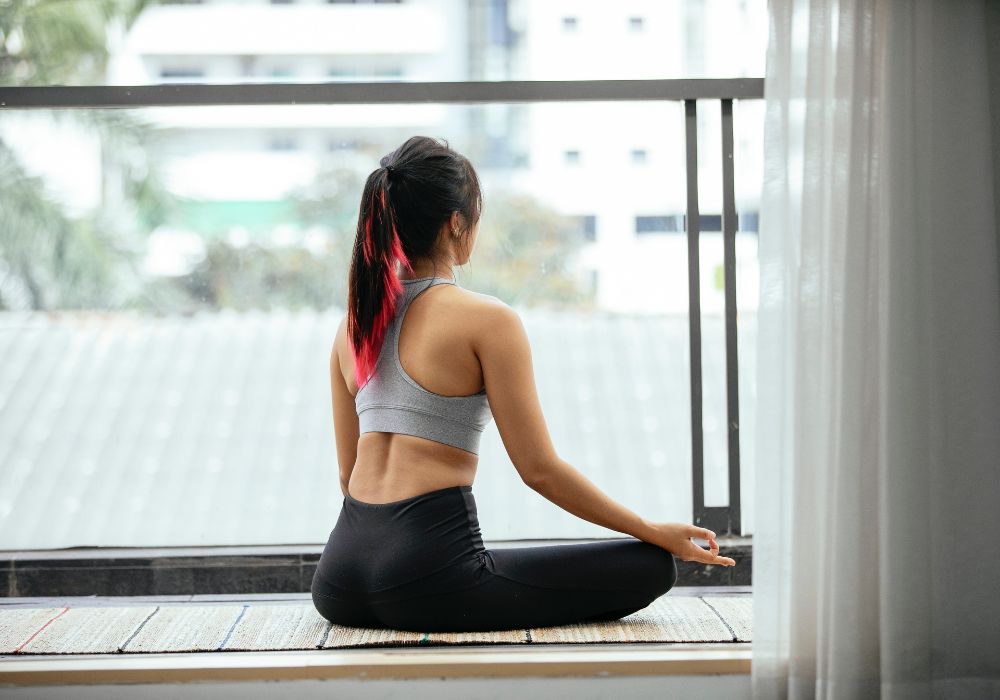In today’s fast-paced and demanding world, stress and anxiety have become common experiences for many people. Looking after our mental well-being is crucial to maintain a healthy and balanced life. Self-care plays a vital role in managing and preventing stress and anxiety, allowing us to nurture our mental health and find inner peace. Through self-care, a person can boost their confidence and reinforce their capabilities in the belief that they can achieve their dreams. The first step in this direction is to be mentally at peace. This blog aims to explore the significance of self-care for stress and anxiety and provide practical tips for incorporating self-care practices into our daily lives.
Understanding Stress And Anxiety For Mental Well-Being
Stress and anxiety are two interconnected experiences that can have a significant and a prolonged impact on our mental health. They may be used interchangeably, but there is a significant difference between the two. Stress is the body’s response to external pressures or demands, while anxiety is a more prolonged feeling of unease, fear, or apprehension. Both have their own mental effects on a person and require separate attention. Understanding the triggers and symptoms of stress and anxiety can help us better navigate these emotions and develop effective self-care strategies.
1. The Significance Of Self-Care
Self-care is an intentional and proactive practice that prioritizes our physical, emotional, and mental well-being. Self-care can also be described as indulging in activities that give peace, relaxation, and comfort to a person. These activities can also be considered to be the ones that give the person a break from their routine and open the possibility of gaining new energy and starting things afresh. Engaging in self-care activities regularly can help alleviate stress and anxiety by providing us with the necessary tools to recharge, relax, and rejuvenate. Here’s why self-care is essential:
1.1 Emotional Regulation: Self-care activities allow us to process and express our emotions in healthy and constructive ways, reducing the intensity of stress and anxiety. Self-care activities are the ones that make us happy. Being happy is one state to attain peace. So, self-care assists in gaining peace.
1.2 Rest And Relaxation: Taking time for rest and relaxation promotes mental clarity, improves sleep quality, and helps restore our energy levels. A break from our tiring routine in the form of any activity we like is essential to break the circle. This break gives us rest and relaxation.
1.3 Building Resilience: Engaging in self-care practices strengthens our ability to cope with stress and bounce back from challenging situations, fostering resilience. This can be understood by the simple example of sleeping at night and starting the next day in a fresh mood. That fresh mood sometimes also results in our coming up with better ideas than the previous day.
1.4 Self-Compassion: Practicing self-care cultivates self-compassion, teaching us to be kind and gentle with ourselves during times of stress and anxiety. It helps us understand our needs, the things that make us happy, and bust our stress in times when required.
2. Self-Care Practices For Stress And Anxiety
Incorporating self-care practices into our daily lives can cast a profound effect on our mental health and well-being. The implementing part can be a little difficult, but once when we make that happen, the changes appear at a different level. Here are some effective self-care strategies for managing stress and anxiety:
2.1 Mindfulness And Meditation: Engage in mindfulness and meditation exercises to bring awareness to the present moment, reduce stress, and calm the mind.
2.2 Physical Exercise: Regular physical exercise, such as walking, yoga, or jogging, releases endorphins, improves mood, and helps relieve stress and anxiety. Try it once and see the effects on your mood on the first attempt.
2.3 Healthy Lifestyle Habits: Prioritize a balanced diet, adequate sleep, and regular hydration to support your body’s overall well-being and enhance your resilience to stress. We may not see it directly but when our body is at its best in health, then there is no stopping for us to achieve what we intend.
2.4 Creative Expression: Explore creative outlets such as painting, writing, or playing a musical instrument as a means of self-expression and stress relief. There are numerous modes and tools available online to try these techniques.
2.5 Social Support: Maintain meaningful connections with friends and family. Seek support when needed and engage in activities that inculcate a sense of belonging and connection. At the simplest level, going out and meeting friends after a long time can have extremely relaxing effects on our mental state.
2.6 Setting Boundaries: Establish healthy boundaries in relationships and learn to say no when necessary. Protecting your time and energy is crucial for reducing stress and anxiety. Indulging in meaningless arguments can drain your energy and trigger stress and anxiety. It is necessary to be aware of where to draw the line and where to back off. If nothing else, then for our own mental well-being.
2.7 Relaxation Techniques: Practice deep breathing exercises, progressive muscle relaxation, or aromatherapy to promote relaxation and alleviate symptoms of stress and anxiety.
3. Integrating Self-Care Into Daily Life
3.1 Prioritize Self-Care: Make self-care a non-negotiable part of your schedule. Set aside dedicated time for self-care activities and treat them as essential appointments with yourself. The time you give yourself will ensure your mental well-being as well as have long-term physical effects too.
Incorporating self-care into our daily routines can sometimes be challenging, but with conscious effort, it can become a natural part of our lives. The implementation of self-care in our lives implies an additional step to ensure that we are at peace. Since it is an additional step, it will require a little extra effort. For example, if we want to get fit, we have to wake up an hour before our usual time to go to the gym or for our morning run. Here are some tips for integrating self-care into your daily routine:
3.2 Start Small: Setting unrealistic targets initially will only result in your not being able to move from where you begin, and ultimately, the result will be zero. Begin by incorporating small self-care practices into your daily routine. Even a few minutes of mindful breathing or a short walk can make a significant difference in managing stress and anxiety. This can be expanded and taken to new levels as your body gets in tune with it.
3.3 Personalize Your Self-Care: Find self-care activities that resonate with you and bring you joy. Everyone is unique, so experiment with different practices and discover what works best for you. Self-care activities vary from person to person. But if you find like-minded people with the same preference in your search, then nothing better.
3.4 Create A Self-Care Toolkit: Develop a toolbox of self-care activities that you can turn to in times of stress and anxiety. This can include things like reading a book, taking a bath, or listening to calming music. It could also include sitting in a coffee shop enjoying your favorite cup of coffee or trying out a tourist destination.
3.5 Practice Self-Compassion: Be kind to yourself and recognize that self-care is not selfish. It is essential for your well-being and allows you to show up as your best self for others. While we work for everyone else, we often tend to forget ourselves. It is necessary to have some “me time” just to enjoy our life and indulge in activities that may have been on our bucket list for long.
4. Seeking Professional Help For Mental Well-Being
While self-care can be incredibly beneficial, it is essential to recognize when professional help may be necessary. If stress and anxiety persist or become overwhelming, consider contacting a mental health professional who can provide guidance, support, and additional strategies for managing these challenges.
5. Creating A Self-Care Routine For Mental Well-Being
To make self-care a consistent practice, it can be helpful to establish a self-care routine. The effects of following a routine are visible in some time, but the psychological effects it has are profound and very positive. Here are some steps to create a self-care routine:
5.1 Identify Your Needs: Reflect on what activities or practices bring you joy, relaxation, and a sense of well-being. The realization of what you like is first among the essentials of what your needs are.
5.2 Set Realistic Goals: Start small and set achievable goals for incorporating self-care into your routine. Gradually increase the time and effort you dedicate to self-care.
5.3 Plan Your Self-Care: Schedule specific times for self-care activities. Treat these moments as non-negotiable and prioritize them in your daily schedule. You may improvise to add more things or activities as you add time.
5.4 Be Flexible: Adapt your self-care routine to different situations and circumstances. It’s okay to modify your routine as needed to accommodate changing needs and priorities. Understanding the needs of your body is essential. If your body is not responding well to the routine you have planned, then there is no harm in improvising it.
5.5 Assess And Adjust: Regularly evaluate your self-care routine to see what is working and what may need adjustments. Listen to your needs and make necessary changes to ensure your self-care routine remains effective and fulfilling.
Conclusion
Prioritizing self-care for stress and anxiety is crucial for nurturing our mental well-being. By understanding the significance of self-care, incorporating effective practices into our daily lives, and seeking professional help when needed, we can better manage stress and anxiety, leading to a healthier and more balanced life. Remember, self-care is not a luxury rather it is a necessity for our overall well-being. Start today and make self-care an integral part of your journey toward mental wellness.





